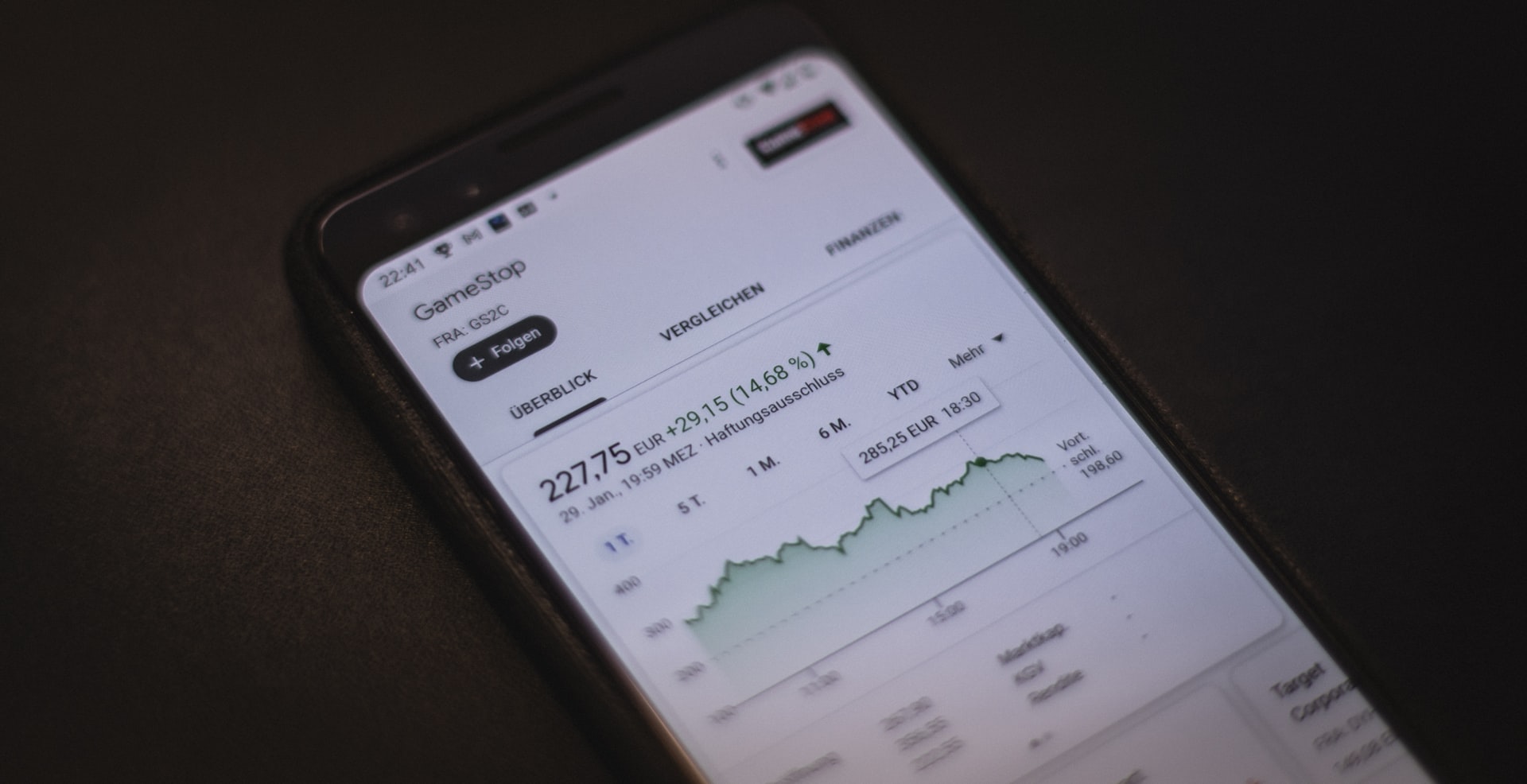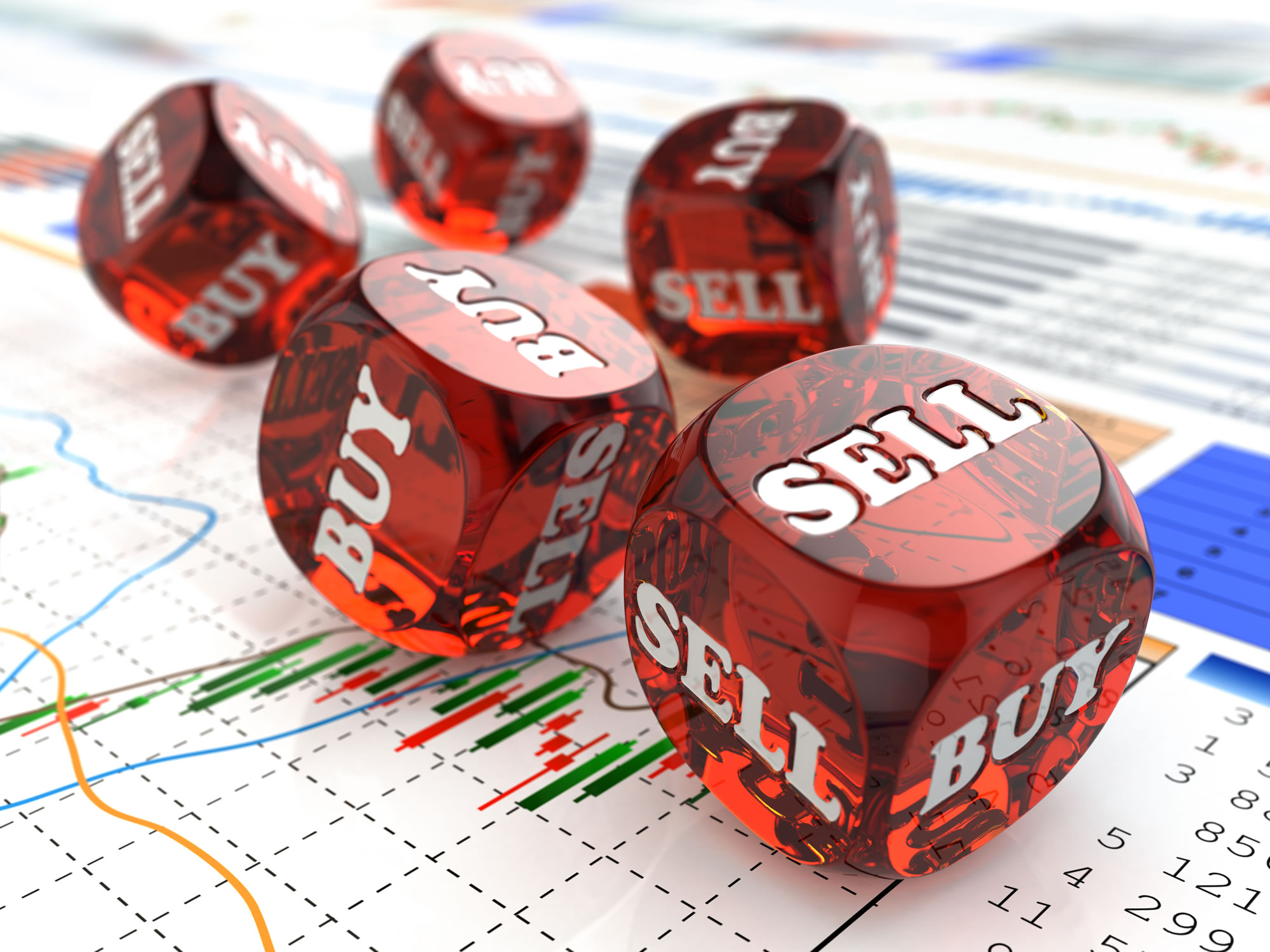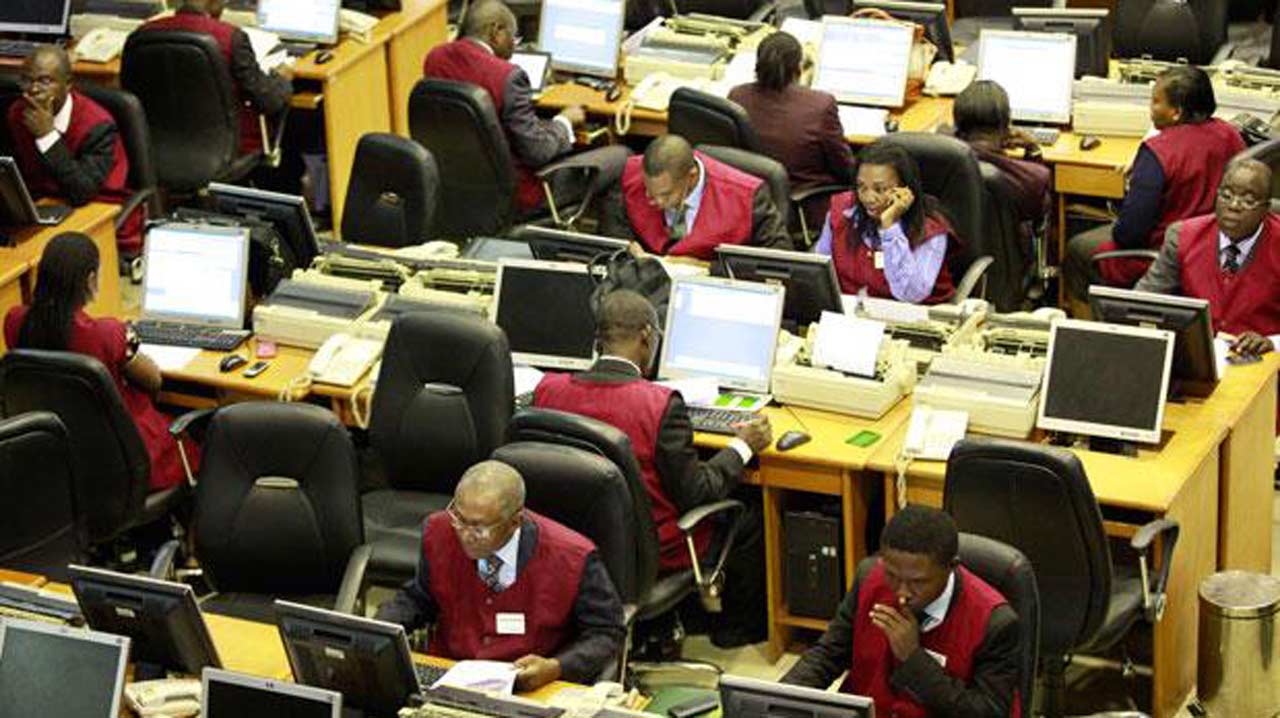Economy
How to Invest in Stocks in Nigeria: Guide for Beginners

One of the most efficient and successful ways of building wealth over a long period of time is through investing in stocks.
All the most successful people have dedicated themselves to investing. One of the prime examples of stock investors is Warren Buffet.
Investing in stock allows you to invest your money in a company and reap the benefits of the company’s growth through the years.
The biggest misconception that exists or existed is that there’s a barrier to entry due to large funds being involved in the stock market. But it’s not at all true. With the technology and facilities that exist today, you can invest as little as N500 to start.
As an investor who is looking to invest in stocks, you need to start by depositing money into an online investment account. From there onwards, you can find yourself a suitable investment broker and start investing in stocks.
How do you invest in stocks?
You always hear some of your friends say that they have started investing in stocks, but you are unaware of how to do it? Or what is it all about?
In this guide, we will help you clearly understand all the steps and procedures needed to start investing in stocks or trading them.
- Choose how you want to invest
There are so many different ways to start investing in stocks, but the first and foremost question you need to answer is that whether you need help with your investments or whether you are aware of what you are doing and you know which stocks to buy.
If you are someone who knows what stocks they want to buy, then it is best that you start off by opening an individual account with a stockbroker and start investing in stocks as per your investment strategy.
If you are someone who needs help with your investments, then it’s ideal to invest in mutual funds or ETFs. Mutual funds are managed by qualified professionals and there are many funds with different investment strategies. Some invest in gold, some in equities etc. and you can choose one based on which markets you want to invest in. Mutual funds are usually safe since they are regulated and managed by professionals.
With a mutual fund, you don’t need to do any research on your own. There is someone who is willing to do all the work for you for a small fee. Everything is taken care of and you needn’t do much apart from providing funds for investments.
- Create your investment plan
Before you begin investing in stocks, the question you will need to ask yourself is why are you interested to invest? Is it because you want to make quick money? Or you want to have a secure source of income for the long term?
As an investor, you need to decide whether you are looking at short term or long-term gains. There’s no doubt that you can make money with short term as well as long-term investing but long-term investing mitigates risks like short-term market volatility and gives you a more secure investment.
Let me explain short-term and long-term through an example. Due to COVID-19, the markets fell by as high as 40 per cent, but within a few months, the market recovered and has since then recovered all the losses.
So, if you were a short-term investor buying a stock, you would likely have lost a lot of money due to market crash had you not held on until the market regained. But if you were a long-term investor, these market conditions wouldn’t have affected your investments a lot.
Long term investors generally focus on value investing and select companies they want to invest in for many years. While short-term investors focus on trading and making money from market movements.
So, set your goals accordingly, don’t expect your money to double over a day or a week, the prices of stocks gradually increase and your wealth gets accumulated over years. This is why you need to be patient and allow market forces to react and drive your prices up. If you have chosen a good company to invest in, then you can be certain that the prices will go up in a few years.
Use a savings and investment compound calculator tool to manage your goals, plan your investments and decide how much you want to save or gain in 10 years.
If you made a small investment as little as 38,12,500 Naira in S&P 500 Index 30-40 years ago, then would have been a millionaire today. This is what the stock market can do for you.
Here’s an example for you that gives you a rough idea about how much you can earn with a small investment over a long period of time:
If you start with N38,050.00 in a savings account earning a 7 per cent interest rate, compounded monthly, and make N3,805.00 deposits on a monthly basis.
After 10 years, your savings account will have grown to N738,897.07 of which N494,650.00 is the total of your beginning balance plus deposits, and N244,247.07 is the total interest earnings.

- Open a trading account
If you are looking to invest in local companies, you can check the Nigerian Exchange (NGX) Limited and choose a stockbroker that will allow you to invest in NGX.
But if you want to invest in international companies that are not listed on the NGX but listed somewhere like New York Stock Exchange (NYSE), then you can choose an online trading platform such as Bamboo, Chaka, Weath.ng etc.
If you are only looking to trade securities i.e., buy or short sell them for the short term, then you can also trade stock CFDs via a Tier-1 licensed forex broker or you can trade stock options via an international broker that accepts Nigerian clients.
As per research by Forex Brokers SA, there are no locally regulated CFD brokers in Nigeria but there are 40+ FSCA regulated South African derivative brokers that accept traders from Nigeria. These brokers offer NASDAQ, American and European stock CFDs.
There are several online platforms in Nigeria that allow you to invest in stocks all around the world, so choose a platform that allows you to invest in a wide variety of stocks and other commodities.
For new investors who are not aware of how the market functions or you are not familiar with the investment process, its highly advisable that you open your account through a Mutual Fund advisor so they can assist you with the entire process and you also will be able to learn and adapt quickly.
Every online platform or stockbroker requires you to complete KYC before you start trading as it’s mandatory. You would normally be asked for your BVN number, ID proof and address proof.
Make sure you provide the correct details and original documents for verification. If there is an error in KYC documents, then there are high chances that you will not be allowed to open your account or likely face issues during withdrawals.
- Decide which stocks do you want to buy
Once you have opened your trading account; you can view all the stocks available on the platform or what the stockbroker offers.
Experienced investors diversify their investments into different stocks and other asset classes like metals, commodities since it is more secure and helps you build a diverse portfolio.
So, avoid investing in just one company, look around the platform and view what other options you might have.
A word of advice to new investors is that don’t invest in every stock you see; you need to understand what the company does and what their business is. After you understand everything about a company and how it is doing, you can further decide to invest in it.
If you are considering investing in a particular company, then you might want to calculate their intrinsic value, which would include analysing the margin of safety, EPS, book value, cash flow and earnings before interest, taxes, depreciation, and amortization (EBITDA).
Once you are aware of all these things, then it will help you make an informed decision.
- Make a budget
The budget is entirely dependent on your lifestyle.
First list all your expenses and take away money for your rent, utilities and groceries and keep it away. The next is to list all your debts and liabilities such as loan repayment, EMI etc.
Once you know what you need for your necessities and liabilities, you will know how much you can spare every month. After this, it will be easy for you to see how much you can invest every month.
One of the biggest mistakes that new investors make is that they will not be able to invest regularly due to other commitments.
So, if you are planning to start investing then make sure that you are regular with your investments. If you make a plan that you will invest N50,000 (approx. $100) every month, no matter what then make sure you do it.
If you feel that there may be an emergency, then save a small amount of money from your income every month so that you can use that fund for emergencies. This way, you needn’t take money from your investments.
If you ensure that a minimum of 40 per cent of your income goes into investments then in 10 years’ time you will definitely start reaping the rewards for years of investment. So, make sure you can invest as much as you can after covering your expenses and liabilities.
There’s a famous saying that if you can’t buy something twice then you can’t afford it. Try cutting down all your expensive wants so you can invest and grow your investments.
A good place for investors with low funds is Exchange Traded Funds (ETF) since the minimum investment requirements are very low.
Warren Buffett once said in his investor letter “The goal of the non-professional should not be to pick winners — neither he nor his “helpers” can do that — but should rather be to own a cross-section of businesses that in the aggregate are bound to do well. A low-cost S&P 500 index fund will achieve this goal.”
- Diversify and manage your portfolio
You can only fully gain from stock market investments over a period of time. Building a diverse portfolio enables you to park your money into more than a single asset class. This is not only safer but it’s less risky than investing all your money into one stock.
If in case the stock that you are invested in crashes, then you lose your entire investment. So, it’s always better to invest in more than one stock. Non-professionals should invest in blue-chip stocks only, or the index fund.
If you are finding it hard to diversify your investments, then invest in a Mutual Fund. Even if you are investing in a mutual fund, then you also need to be absolutely sure about all the costs, fees, expected returns and risks involved with that too.
Another big advantage of building a diverse portfolio is that it will help you fight market volatility without suffering major losses. Since your investments are tied into different stocks, assets, it will lower the risks that come with markets.
You should look at stock market investing as a long-term process rather than checking daily returns and let your investments handle themselves. You should just wait for your investments to mature.
Conclusion
Investing in stocks is a good way to building long term wealth but it requires you to be patient and regular with your investments. If you are looking for short term gains then stock market investments aren’t the best option for you.
If you are regular with your investments, it can almost be assured that a good portfolio might even allow you to retire early.
Also, be fully aware of the risks, and don’t invest money that you cannot afford to lose. Do your full research & invest wisely.
Economy
Three Securities Raise NASD Exchange by 0.84%

By Adedapo Adesanya
Price appreciation recorded by three securities raised the NASD Over-the-Counter (OTC) Securities Exchange by 0.84 per cent on Thursday, May 8.
FrieslandCampina Wamco Nigeria Plc appreciated by N2.20 to close at N41.03 per share compared with the preceding day’s value of N38.83 per share, Central Securities Clearing System (CSCS) Plc exchanged by N2.17 to trade at N23.88 per unit versus N21.71 per unit, and Afriland Properties Plc added N1.07 to settle at N17.45 per share, in contrast to Wednesday’s price of N16.38 per share.
On the flip side, the price of Geo-Fluids Plc went down by 8 Kobo to end at N1.92 per unit compared with the N2.00 per unit it was traded at midweek.
At the close of transactions, the market capitalisation of the trading platform went up by N16.27 billion to N1.944 trillion from N1.927 trillion and the NASD Unlisted Security Index (NSI) rose by 27.80 points to 3,320.16 points from the previous session’s 3,292.36 points.
During the trading session, there was a 58,260.6 per cent surge in the volume of securities transacted in the session to 346.3 million units from the 593,373 units transacted in the previous trading day.
Equally, there was a 4,832.3 per cent rise in the value of securities traded during the trading day to N882.8 million from N17.9 million, but the number of deals dropped 40.7 per cent to 16 deals from 27 deals previously recorded on Wednesday.
Impresit Bakolori Plc finished the day as the most active stock by volume on a year-to-date basis with 533.9 million units worth N520.9 million, followed by Geo-Fluids Plc with 265.8 million units valued at N469.5 million, and Okitipupa Plc with 153.6 million units sold for N4.9 billion.
Okitipupa Plc also remained as the most traded stock by value on a year-to-date basis with 153.6 million valued at N4.9 billion, trailed by FrieslandCampina Wamco Nigeria Plc with 19.5 million units sold for N750.2 million and Impresit Bakolori Plc with 533.9 million units worth N520.9 million.
Economy
Naira Firms to N1,609/$1 at Official Market, Falls to N1,625/$1 at Black Market

By Adedapo Adesanya
The Naira traded mixed in the foreign exchange (FX) market on Thursday, appreciated against the US Dollar at the Nigerian Autonomous Foreign Exchange Market (NAFEM) and depreciating in the black market.
In the parallel market, the Nigerian currency weakened against the greenback during the trading day by N5 to sell for N1,625/$1, in contrast to the N1,620/$1 it was traded a day earlier.
However, in the official market, the domestic currency improved its value against its American counterpart by 0.1 per cent or 89 Kobo to trade at N1,609.57/$1 compared with the N1,610.46/$1 it was exchanged at midweek.
In the same spot market, the Naira tumbled against the Pound Sterling on Thursday by N7.75 to settle at N2,145.48/£1 versus Wednesday’s closing price of N2,137.73/£1 and gained N3.35 against the Euro to close at N1,818.41/€1 compared with the previous day’s N1,821.41/€1.
Sustained pressure on the country’s external reserves and a widening demand-supply gap in the FX market have weakened the Naira in the past few sessions.
However, there is evidence that debt repayments made from the external reserves have yielded outcome as the International Monetary Fund (IMF) has removed Nigeria from its Total IMF Credit Outstanding list after repaying the $3.4 billion pandemic loan.
Nigeria was among the countries that relied on the IMF for funding support and it has repaid the loan, prompting the lender to remove its name from the debtors’ list.
The journey towards clearing this debt began in earnest in 2023, when the nation’s IMF debt stood at $1.61 billion, reaching $472 million by January 2025.
Meanwhile, the cryptocurrency market soared yesterday in response to US President Donald Trump’s hyping up a trade deal with the United Kingdom, which offered the market some respite as it signaled reducing risk.
Bitcoin (BTC) was up by 4.3 per cent to $103,130.67, Ethereum (ETH) surged by 18.1 per cent to $2,249.11, Cardano (ADA) rose by 9.1 per cent to $0.7675, Dogecoin (DOGE) appreciated by 8.8 per cent to $0.1965, and Solana (SOL) jumped by 8.7 per cent to $163.25.
Further, Ripple (XRP) grew by 5.9 per cent to $2.30, Litecoin (LTC) went up by 4.3 per cent to $95.59, and Binance Coin (BNB) increased by 2.9 per cent to $628.48, while the US Dollar Tether (USDT) and the US Dollar Coin (USDC) closed lat at $1.00 each.
Economy
Crude Oil Prices Soar 3% Ahead of US-China Trade Talks

By Adedapo Adesanya
crude oil prices were up by around 3 per cent on Thursday following a breakthrough in looming trade talks between the US and China, the world’s two largest oil consumers.
Brent crude futures gained $1.72 or 2.8 per cent to trade at $62.84 a barrel and the US West Texas Intermediate (WTI) crude futures rose by $1.84 or 3.2 per cent to finish at $59.91 per barrel.
The US Treasury Secretary, Scott Bessent, will meet with China’s top economic official in Switzerland on May 10 for negotiations over a trade war disrupting the global economy.
Optimism around those talks was providing support to the market just as President Donald Trump on Thursday unveiled the broad outline of a trade agreement with the United Kingdom.
The deal is the first by the US with a country whose imports were subject to new tariffs imposed by Trump in early April.
The trade deal leaves in place a 10 per cent tariff on goods imported from the UK while Britain agreed to lower its tariffs to 1.8 per cent from 5.1 per cent and provide greater access to US goods.
He said that the deal includes “billions of dollars of increased market access for American exports,” and that the UK will “reduce or eliminate numerous nontariff barriers that unfairly discriminated against American products.”
On the supply front, the Organisation of the Petroleum Exporting Countries and its allies in OPEC+ will increase its oil output, pressuring prices.
According to Reuters, OPEC oil output edged lower in April despite a scheduled output hike taking effect, led by a cut in Venezuelan supply on renewed US attempts to curb the flows and smaller drops in Iraq and Libya.
Market analysts warned that a US-Iran nuclear deal could drive Brent prices down toward $50 per barrel on increased global supply, but without a deal prices could rise to over $70.
US sanctions on two small Chinese refiners for buying Iranian oil have created difficulties receiving crude and led them to sell product under other names.
This is evidence of the disruption that the US stepped-up pressure is inflicting on Iran’s biggest oil buyer.
Five independent refineries in the Shandong province stopped buying Iranian crude in April for fear of being next on the list of sanctions.
-

 Feature/OPED5 years ago
Feature/OPED5 years agoDavos was Different this year
-
Travel/Tourism9 years ago
Lagos Seals Western Lodge Hotel In Ikorodu
-

 Showbiz2 years ago
Showbiz2 years agoEstranged Lover Releases Videos of Empress Njamah Bathing
-

 Banking7 years ago
Banking7 years agoSort Codes of GTBank Branches in Nigeria
-

 Economy2 years ago
Economy2 years agoSubsidy Removal: CNG at N130 Per Litre Cheaper Than Petrol—IPMAN
-

 Banking2 years ago
Banking2 years agoFirst Bank Announces Planned Downtime
-

 Sports2 years ago
Sports2 years agoHighest Paid Nigerian Footballer – How Much Do Nigerian Footballers Earn
-

 Technology4 years ago
Technology4 years agoHow To Link Your MTN, Airtel, Glo, 9mobile Lines to NIN

















